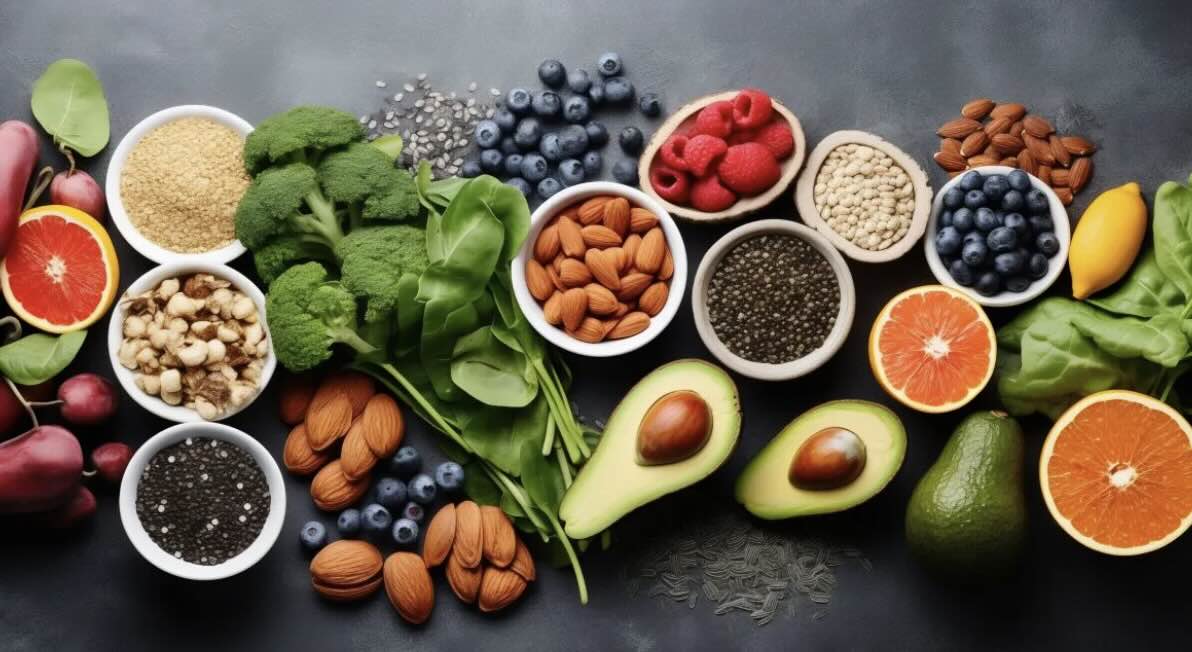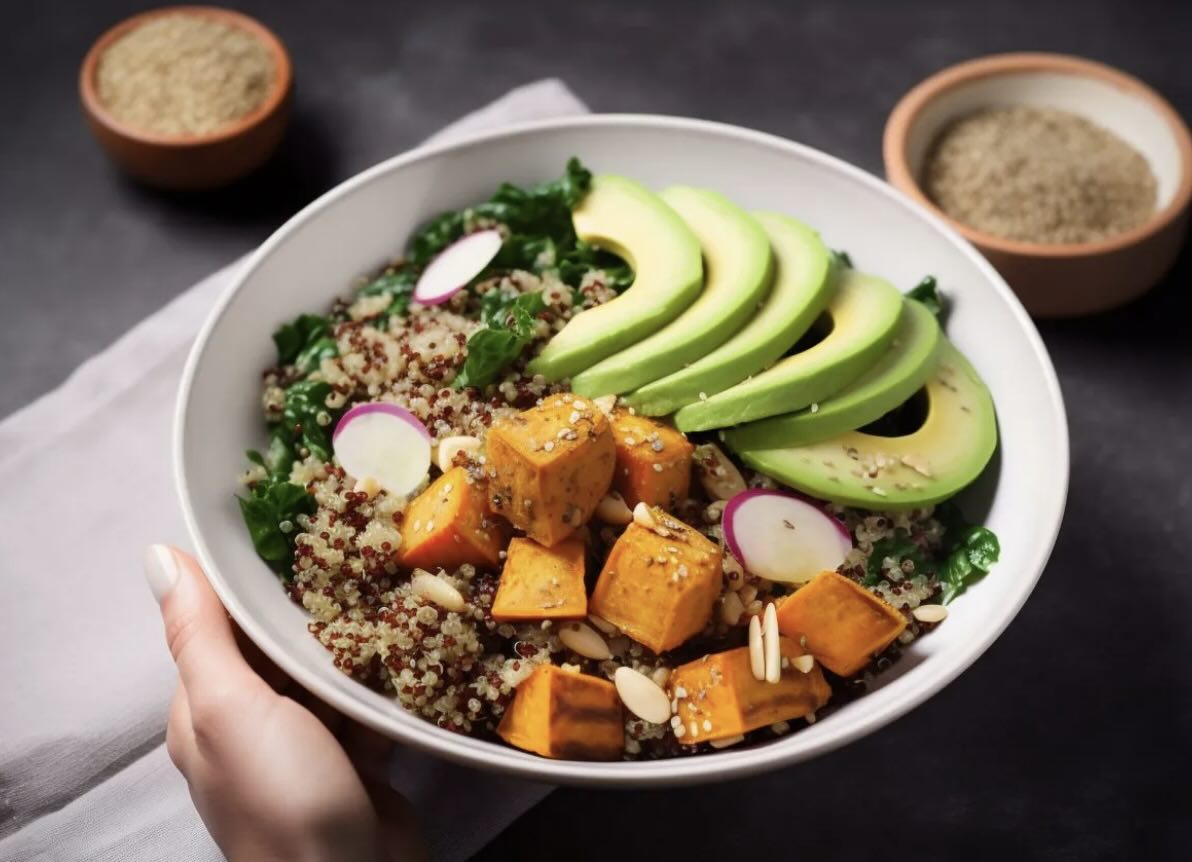Breakfast Foods That Help with Anxiety and Stress: A 7-Day Nutritional Guide
Starting your day with the right breakfast can significantly influence your mood and energy levels, especially when managing stress and anxiety. Incorporating foods rich in omega-3 fatty acids, antioxidants, and probiotics can help stabilize your mood and set a positive tone for the day. Here are some top breakfast ideas designed to combat stress and boost mental wellness:
Why Nutrition Matters
Although diet should not be the sole intervention for managing stress and anxiety, it plays a crucial role in overall health and emotional well-being. This meal plan focuses on incorporating foods that help reduce inflammation, support gut health, and boost mood.
Key Components of the Stress Relief Diet
-
- Whole Foods: Enjoy a variety of fruits, vegetables, whole grains, lean proteins, nuts, seeds, and legumes. These foods are not only nutritious but can also help reduce inflammation, which is often elevated in stressful conditions.
-
- Probiotics: Foods like yogurt, kefir, and sauerkraft are rich in probiotics, which support gut health. A healthy gut is increasingly linked to a healthy mind, with numerous studies suggesting that gut health directly impacts mental health.
-
- Omega-3 Fatty Acids: Include sources like fatty fish, walnuts, and chia seeds in your diet. Omega-3s are essential for brain health and are proven to decrease anxiety levels and enhance mood.
-
- Magnesium-Rich Foods: Incorporate leafy greens, nuts, seeds, and whole grains to ensure adequate magnesium intake. Magnesium is vital for neurotransmitter regulation, which plays a key role in mood stabilization.
Stress-Reducing Breakfast
1. Peanut Butter Strawberry Overnight Oats Kickstart your week with a blend of creamy peanut butter and fresh strawberries layered with oats. This dish is not only rich in fiber and protein but also includes magnesium from peanut butter and antioxidants from strawberries, aiding in stress reduction.
2. Yogurt with Blueberries and Granola A simple yet powerful breakfast, combining Greek yogurt with blueberries. The probiotics in yogurt support gut health, which is crucial for mental well-being, while the antioxidants in blueberries combat stress.
3. Poached Eggs on Sourdough with Kiwi Eggs are an excellent source of vitamin D and B12, supporting neurological functions and mood regulation. Paired with sourdough and kiwi, this breakfast is perfect for enhancing your mood and providing sustained energy.
4. High-Protein Pancakes with Boysenberries Start your day with pancakes that do more than fill you up. Enriched with protein and topped with boysenberries, this meal combats stress while satisfying your sweet tooth without the sugar crash.
5. Avocado and Cottage Cheese on Toast The healthy fats in avocado and the protein in cottage cheese provide a balanced meal that stabilizes blood sugar levels and mood. This combination ensures you're fully fueled and stress-free throughout your morning.
7-Day Meal Plan for Anti-Anxiety and Stress Relief
Now that we've explored some energizing breakfast options, let's dive into a comprehensive 7-day meal plan designed to further support your mental well-being and reduce anxiety.
Key Features of the Meal Plan:
1. Balanced Meals for Stable Energy
Each meal in this plan combines protein, high-fiber carbohydrates, healthy fats, and fruits or vegetables. This combination not only stabilizes blood sugar levels but also provides sustained energy throughout the day, helping to keep anxiety at bay.
2. Quick and Simple Recipes:
Recognizing that high anxiety levels can diminish the desire to cook, the meals included are designed to be straightforward and quick to prepare. Most meals take just 5-15 minutes to make, with dinners requiring slightly more time.
3. Adequate Daily Calories
The meal plan targets a daily intake of approximately 2,000 calories, although adjustments might be necessary to meet individual needs. Adequate caloric intake prevents the body from entering a stress-induced "fight-or-flight" mode, which can worsen anxiety symptoms.
4. Focus on Anti-Inflammatory Foods
Incorporating ingredients with anti-inflammatory properties
like omega-3s, magnesium, and antioxidants, helps reduce
inflammation—a factor that can exacerbate anxiety.
Enhanced Wellness Tips:
1. Hydration and Mindful Eating Practices
Staying hydrated is crucial, as dehydration can exacerbate anxiety symptoms. The plan also encourages mindful eating practices, such as eating slowly, tuning into hunger and fullness cues, and enjoying the flavors and textures of your food.
2. Regular Meal Times
Establishing and maintaining regular meal times can provide a sense of structure and predictability, which is especially comforting during times of stress.
Embracing Nutritional Wellness for Stress and Anxiety Relief
As we've explored through a week of thoughtfully designed breakfasts and a comprehensive meal plan, the right dietary choices can profoundly influence our mental well-being. By starting each day with nutrient-rich meals that stabilize mood and boost energy, and continuing with balanced, easy-to-prepare dishes, we harness the power of nutrition to combat the effects of stress and anxiety.
While no single approach is a remedy alone, integrating these dietary practices with mindful eating and consistent meal times creates a robust foundation for managing stress. Embrace this plan as your guide to a calmer, healthier life.
Disclaimer: This meal plan is
intended for informational purposes only and should not be
taken as medical advice. Always consult with a healthcare
professional before making significant changes to your diet,
especially if you have health conditions or are taking
medication.
Ready to level-up?
Create meal plans 10x faster, follow up with your clients through our mobile app, and never struggle with meal planning or recipe management again.

